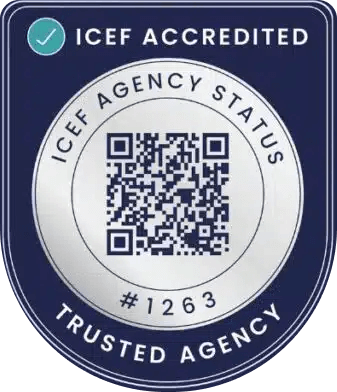 Shiva Krishna
Shiva Krishna

The Opportunity Card (Chancenkarte) was created in Germany to give a new entry point for skilled people globally. Designed to make migration easier, this points-based system allows qualified non-EU citizens to migrate to Germany, look for work locally, and even work part-time while looking for work. For many, it eliminates the conventional obstacle of getting a full-time work offer prior to moving.
In this blog, we’ll explain what is Germany Opportunity Card, highlight its benefits, and walk you through the Chancenkarte application process step by step.

Name: Opportunity Card (Chancenkarte)
Who it is for: Skilled non-EU nationals without a prior full-time job offer
Stay duration: Up to 12 months to search for work
Work while searching: Allowed part-time up to 20 hours per week
Entry pathways: Recognized qualification route or points-based route (minimum six points)
Application: Through German missions abroad or via the Digital Diplo consular portal
Visa fee: Around €75 for adults applying for a national visa
If you are unsure whether you qualify, Career Gyan’s consultants can help with a free initial eligibility review.
Germany is experiencing ongoing workforce shortages in IT, healthcare, engineering, and skilled professions. Demographic shifts, an aging workforce, and rising demand for digital competence have created key skills shortages that local talent cannot address. To address this, the government introduced the Opportunity Card as part of the Skilled Immigration changes for 2023-2024, which will be accessible on June 1, 2024. Unlike the previous Job Seeker Visa, which had strict recognition requirements and limited flexibility, the new strategy removes barriers by allowing applicants to enter Germany and actively seek work on the spot. People having foreign qualifications that are not fully recognized may apply by utilizing a basic point-based method. This creates a more practical, inclusive pathway, making Germany more competitive in the global race for talent while offering skilled workers new opportunities to build careers in Europe’s largest economy.
1. Recognized Qualification Route
You can be qualified for the Opportunity Card without needing to meet any additional requirements if your degree or practical training is currently accepted in Germany. Recognition guarantees that your credentials meet German requirements, which can be verified by ANABIN database or Central Office for Foreign Education (ZAB). Processing times at ZAB can take up to 3 months for a Statement of Comparability, though expedited cases may be completed in 2–8 weeks depending on the pathway.
2. Points-Based Route (minimum six points)
If your qualification is not recognized, you can still apply by meeting three basic requirements and earning at least six points. Points are awarded for criteria such as education, professional experience, language skills, age, and prior links to Germany. This route is flexible and gives applicants who lack direct recognition a fair chance to demonstrate employability and skills relevant to Germany’s labor market.
Preparing recognition documents can be complex. Career Gyan provides expert support with ANABIN checks and ZAB applications to ease this step.

Applicants for the Germany Opportunity Card must meet several essential requirements.
Professional Qualification: You must have a university degree or at least 2 years of recognized vocational training. Non-recognized qualifications can still be considered through the points-based system.
Financial Proof: You need to show that you can support yourself during your stay. This can be through a blocked account (~€11,208/year), personal savings, or a part-time job of up to 20 hours per week.
Language Skills: Minimum proficiency in German (A1) or English (B2) is required. Higher skills improve your job prospects.
Valid Passport: Your passport must be valid for the duration of your stay.
Health Insurance: Coverage for the entire stay is mandatory.
Work Experience: Relevant experience strengthens your application.
Age Requirements: Most applicants are 18–35 years, but mature professionals with strong qualifications are also eligible.
Meeting these requirements ensures a smooth application process and improves the chances of approval for the Opportunity Card.
|
Expense |
Amount (EUR) |
Amount (INR approx.) |
|
Application Fee |
€75 |
INR 6,800 |
|
Proof of Funds |
€11,208/year |
INR 10,00,000 |
|
Health Insurance |
€80–120/month |
INR 7,000–10,000 |
|
Living Expenses |
€900–1,200/month |
INR 80,000–1,00,000 |
|
Category |
Points Range |
Example |
|
Recognized qualification |
up to 6 |
Automatically qualifies |
|
Work experience |
1–3 |
Recent years in your profession |
|
Language skills |
1–3 |
German A2–B2 or English C1 |
|
Age |
1–2 |
Younger applicants score higher |
|
Links to Germany |
1–2 |
Prior stays, family ties |
Applicants need at least six points to qualify. Use the Opportunity Card Points Calculator before submitting.
Begin by navigating to the official self-check portal on Make It In Germany. This tool assists you in determining if you qualify for the recognized qualification route or the points-based approach.
Prepare all necessary documents, including your valid passport, degree or occupational training diplomas, language test results, financial proof such as a blocked account or bank statements, and an updated CV. Make sure to get translations and notarizations if necessary because incomplete files frequently cause delays.
For applicants following the points path, collect unambiguous documents for each point category, such as work experience letters, language certifications, or proof of previous stays in Germany. This step is critical because the minimum requirement is six points.
Submit your application to German Embassy or Consulate in your country, or use an online consular portal if available. Generally speaking, a visa costs about €75. Make plans ahead of time because appointments can be weeks away.
Once approved, you may enter Germany and stay for up to 12 months while seeking full-time employment. During this time, you are able to work part-time for up to 20 hours per week, which can help with living expenses.
After securing a qualified job, visit the local Foreigners’ Office to convert your Opportunity Card into a residence title, such as a work permit or EU Blue Card. This transition is what opens the pathway to long-term residence in Germany.
Need guidance on how to apply for an Opportunity Card? Book your consultation with Career Gyan today.
Flexibility to stay in Germany for up to 12 months while searching for employment across different industries.
Permission to work up to 20 hours per week, helping applicants cover living costs and gain exposure to the German workplace culture.
Inclusion of applicants with non-recognized qualifications through the points-based system makes the card accessible to a wider group of skilled professionals.
A clear pathway to convert the card into a work visa, EU Blue Card, or long-term residence once a qualified job is secured, supporting career growth and settlement in Germany.

Recognition checks typically take 1-3 months, depending on the complexity of the qualifications and documentation.
Consular appointments take 2-8 weeks, depending on local embassy workload and seasonal demand.
Processing takes 2-6 weeks following the appointment, though speedier cases may occur if all documentation is completed.
The Chancenkarte is a new, flexible option for talented individuals seeking employment in Germany. By providing both a recognized certification path and a points-based method, it serves a broad spectrum of applicants.
If you are considering applying, Career Gyan's expert advisors can help you with eligibility checks, document preparation, and embassy appointment advice. Start your journey here.
Pursuing higher education in Medical and STEM (Science, Technology, Engineering, and Mathematics) fields opens doors.
Membership


Accreditation

Countries
2025 © All rights reserved by careergyan.co